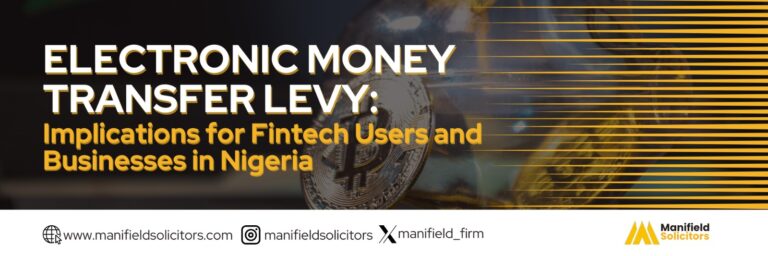Introduction
Evolutions and developments within well-organized systems occur for different reasons. At times, it may be due to the obsolescence of old methods or the necessity of introducing new practices and methods during critical circumstances to ensure the smooth functioning of these systems. These practices are put in place to avoid problems and keep things on track.
In the Judicial System, every court aims to uphold justice. One obstruction to the delivery of justice is delays in its service, which can occur due to time constraints, technical issues, and various other factors.
In 2020, the world experienced the far-reaching effects of the COVID-19 pandemic, resulting in widespread lockdowns and the adoption of new practices, such as Virtual Hearings in Nigerian Courts. This crisis ushered in the era of Virtual/Remote Hearings in the Nigerian Legal System, which remained in place even after the lifting of lockdown measures, becoming a standard procedure for hearing and resolving cases.
Platforms Used for Virtual Hearing in Nigerian Courts
In Nigeria, virtual court hearings are conducted through platforms like Zoom, Microsoft Teams, Google Meets, and Skype for business and other video conferencing platforms specified by the court.[1]
Development of Virtual Hearing in Nigeria
Following the outbreak of COVID, one of the measures put in place to reduce the wild spread of the disease was a full lockdown. This encompassed the lockdown of all public places, such as churches, hospitals, schools, markets, and ultimately, the courts. Normal business operations ceased, streets were deserted, and only urgent matters were heard in courts.
Sequel to this lockdown, the then Chief Justice of Nigeria, Hon. Justice Tanko Mohammed issued a Practice Direction to courts in Nigeria as follows:
‘‘…in view of the reality of COVID-19 in the country and to take further preventive steps, all heads of courts are from tomorrow, the 24th day of March 2020 directed to suspend court sittings until further period two weeks at the first instance, except in matters that are urgent, essential or time bound according to our extant laws…’’
This Practice Direction set the wheels of virtual hearing in motion, and as a result, Rulings and Judgments have been delivered. Essentially, this development of virtual hearing stopped what could have been a disastrous disservice to the judicial system in Lagos, and Nigeria as a whole.
The first virtual court hearing session was that of one Mr. Olalekan Hameed tagged ID/9006C/2019 via Zoom. Mr. Olalekan was sentenced to death by hanging for the murder of his former employer, one 76-year-old Mrs. Jolasum Okunsanya. Justice Mojisola Dada of the Ikeja High Court blazed the trail[2].
Other courts since then have not only heard matters through the Remote Hearing Avenue but have also given Rulings and pronounced Judgments. For instance, using the virtual courtroom, a judge of the Borno State High Court, Justice Fadawa Umaru, delivered a judgment in the case of the State v. Ali Mohammed. The defendant was found not guilty and was discharged and acquitted by the learned judge.
Requirements for Virtual Hearings in Lagos
The Practice Direction was issued by Hon. Justice K. O. Alogba, Chief Judge of Lagos State pursuant to the provisions of Section 6(6) of the Constitution of the Federal Republic of Nigeria, 1999 (as amended), Order 49 Rules 1, 2 and 3 of the High Court of Lagos State (Civil Procedure) Rules, 2019 and any other enabling legislation.
The objective of the Practice Direction was to the effect that it shall ensure:
- Timely and efficient disposal of cases;
- Use of suitable technology;
- Just determination of the proceedings; and
- The efficient use of available judicial and administrative resources.
Parties who seek to explore legal representation remotely will have to go through the process laid down for it. The Hon. Chief Judge of Lagos State on the 28th day of March 2024 issued a Circular to the effect that:
- The Remote Court/ Virtual Proceeding shall attract a fee of N30,000.00 (Thirty Thousand Naira) per session;
- All Applications for virtual hearing shall be made to the Court hearing the matter;
- Upon approval, payment shall be made to the court;
- Upon receipt of payment, the Assistant Chief Registrar (ACR) Litigation shall schedule the case for hearing.
Consequent to this is the electronic filing of processes. Parties and counsel shall ensure that documents filed electronically be scanned and converted to an appropriate PDF format and forwarded to the Registrar via a designated email address or WhatsApp channel. The Circular was to take effect in all virtual or remote proceedings across the state from the 1st day of April 2024.
This is followed by the service of processes. Service of court processes may be effected by email, WhatsApp channel or as otherwise directed by the court notwithstanding the provisions of the High Court of Lagos State (Civil Procedure) Rules 2019 and the Lagos State Magistrates’ Court (Civil Procedure) Rules 2009. This service constitutes good and proper service.
Matters Eligible to be heard Virtually
Essentially, the matters that are heard virtually are civil cases that do not require taking any in-person evidence. Where documentary evidence is substantial, the matter may be heard virtually.
On the other hand, the virtual hearing does not include matters that are criminal in nature. This is because, it is compulsory for the defendant in a criminal matter to attend court and give evidence in court.
Impacts of Virtual Hearing on the Judicial System
The positive impact of virtual hearings in our legal system cannot be overemphasized.
Firstly, virtual hearings save valuable time for litigants. They can get legal help while still doing their daily tasks. This is convenient for both lawyers and judges too. It is better than spending long hours in court for just a few minutes of case time.
Additionally, there will be greater transparency in the proceedings because everything is recorded electronically. This means data will not be lost and documents will not be altered by anyone acting in bad faith.
Moreover, the cost of operating the courts will be significantly reduced. Expenses like diesel, printing papers, and payments for support staff such as cleaners and security officers will be reduced.
Furthermore, inefficient case management will become obsolete as more cases can be handled swiftly and effectively through virtual court sessions.
Challenges of Virtual Hearing
- In-person testimony is argued to be more efficient due to the better detection of witness demeanor in open court, influencing judges’ judgments, which may not be as easily discernible in virtual testimonies.
- Lack of access to necessary technology such as computers, phones, and internet connectivity prevents some litigants from participating in virtual hearings, limiting their access to legal representation.
- Network glitches hinder the efficiency of virtual hearings, as network providers struggle to find lasting solutions, causing frustration and impeding the process.
- Unstable electricity poses a significant obstacle to the effective operation of virtual hearing systems.
Recommendations and Conclusion
The emergence of virtual hearings in the Nigerian judicial system, particularly in Lagos, has been a significant response to the challenges posed by the COVID-19 pandemic. This innovative approach has not only ensured the continuity of legal proceedings but has also introduced efficiency and convenience into the court system. The implementation of virtual hearings has demonstrated several benefits, including the timely disposal of cases, the use of suitable technology, the just determination of proceedings, and the efficient utilization of judicial and administrative resources. Additionally, virtual hearings have saved time for litigants, lawyers, and judges, increased transparency in proceedings, and reduced the overall cost of running the courts.
However, the transition to virtual hearings has not been without its challenges. Issues such as the preference for in-person testimony, the lack of access to technology for some individuals, network glitches, and unstable electricity have posed obstacles to the effectiveness of virtual proceedings. To address these challenges and fully harness the potential of virtual hearings, a few recommendations are suggested. First, strict regulations should be put in place by the heads of courts to ensure the widespread adoption of virtual proceedings. Legal practitioners should also play a role in sensitizing their clients and encouraging them to embrace virtual hearings. Additionally, the government should invest in infrastructure to improve internet connectivity, particularly in rural areas, and provide adequate training and support to ensure accessibility to virtual hearings for all citizens.
In essence, virtual hearing has become an integral part of the legal landscape in Nigeria, and its adoption should be embraced by all stakeholders. By leveraging technology and promoting awareness and accessibility, the legal system can evolve to meet the needs of modern society, ensuring justice is not only done but also accessible and efficient for all.
[1] Part F, Federal High Court Practice Direction for Covid–19 Period 2020
[2] ANEKE: the legality of virtual court hearing in Nigeria: the way forward (p 57)






Add your first comment to this post